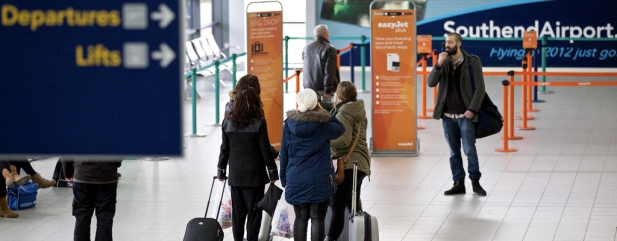Archived article
Please note that tax, investment, pension and ISA rules can change and the information and any views contained in this article may now be inaccurate.
Stobart has attractive dividends and plenty of growth

If you’re interested in a profitable company paying a decent dividend, take a look at Stobart (STOB). The diversified infrastructure, energy and aviation business believes it has plenty of avenues for growth, meaning its recent share price rally may have much further to go.
Warwick Brady, who took over from founder and major shareholder Andrew Tinkler as chief executive in June, has ambitious hopes for the company.
He wants to turn it into a £2bn market cap business by 2022. It’s currently worth just shy of £1bn. Revenue is forecast to jump from £129.4m in the year to February 2017, to hit £265.5m in 2018 and £354.9m in 2019.
Hoping to fly high
Stobart has many divisions but it is Brady’s background as chief operating officer of EasyJet (EZJ) that suggests where a good chunk of growth will be generated. Stobart owns and runs Southend airport and Brady believes it could become a major London transport hub.
The company has already increased passenger numbers by 25% in the first half of the year to 610,000 customers and is looking to boost that figure to 5m by 2022.
It has also invested £2.6m on set-up and marketing costs for 11 new Flybe (FLYB) routes launched in May and the airline along with EasyJet has committed to basing a further three planes at the airport.
This could add an additional 520,000 passengers per year and the company is in discussions with other airlines to increase capacity over the next two years.
Cenkos analyst Sandy Chen says: ‘We expect that Southend’s top customer satisfaction ratings and peak time slot availability will continue to attract more aircraft/route allocations.’
Goodbye debt, hello dividends
Stobart’s recent £124m sale of part of its stake in trucking company Eddie Stobart Logistics (ESL:AIM) has helped to clear its debts. Net debt stood at £121m last year, it now has a net cash position of £2.9m. It retains 12.5% of ESL worth around £70m.
This stronger balance sheet should mean more cash in shareholders’ pockets in the form of dividends. Investment bank Stifel forecast 18p per share this financial year, equal to a 6.2% yield on the latest share price of 288.5p.
Stifel expects the dividend to go up to 18.5p in 2019 and 19.1p in 2020.
The company recently had some setbacks with it biomass energy division due to delays with commissioning at six plants. But these deals to supply fuel are locked in with contracts so it’s only a timing issue. Once all the plants are operational this will be yet another long-term revenue stream for the business. (DS)
Important information:
These articles are provided by Shares magazine which is published by AJ Bell Media, a part of AJ Bell. Shares is not written by AJ Bell.
Shares is provided for your general information and use and is not a personal recommendation to invest. It is not intended to be relied upon by you in making or not making any investment decisions. The investments referred to in these articles will not be suitable for all investors. If in doubt please seek appropriate independent financial advice.
Investors acting on the information in these articles do so at their own risk and AJ Bell Media and its staff do not accept liability for losses suffered by investors as a result of their investment decisions.
Issue contents
Big News
- Loss of confidence in UK IPO market
- Sweet and sour from ABF
- UK challenger bank in £1.1bn takeover
- Is GVC clearing the decks for Ladbrokes bid?
- Scottish Mortgage pleads for patience
- The fall-out from first rate rise in a decade
- Merry Christmas for Morrisons
- Why Indivior’s opioid addiction treatment is likely to be approved this month

 magazine
magazine









